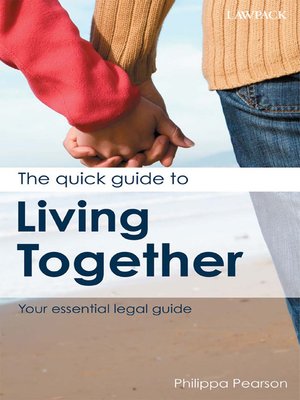
Sign up to save your library
With an OverDrive account, you can save your favorite libraries for at-a-glance information about availability. Find out more about OverDrive accounts.
Find this title in Libby, the library reading app by OverDrive.



Search for a digital library with this title
Title found at these libraries:
| Loading... |
Many unmarried couples living together assume that they have the same legal rights as married couples, or civil partnerships, should one of them die or the couple split up. But if you think that cohabiting couples have the same legal rights as spouses, think again.
In the eyes of family law, the terms 'common law marriage' or a 'common law wife' or 'common law husband' don't exist. So although you may think that you don't need a marriage certificate to prove how much you're in love, you do need to consider your financial security as living together does pose big risks when you're sharing assets, joining your income and setting up home together.
There is a myth that if you've been living together with your partner, unmarried, for over seven years, then under "common law" you have a legal right to half of your partners' property as their "common law wife" or "common law husband".
But this is untrue. No matter how long you've been living together and how many children you have had together, cohabiting couples do not have automatic rights in the following events:
So, if you want to find out your legal rights as a cohabiting couple and how you can protect yourself financially and in the eyes of the law, then our Living Together - An Essential Legal Guide can help.
Although you may not have defined legal rights as an unmarried couple, there are steps you can take to ensure that you will be financially provided for in the event of separation, illness or death.
Living Together - An Essential Legal Guide will help you to take those steps and if you are one of the many people who didn't take any of these steps when your relationship was going well, then this cohabitation rights guide will tell you how to make the most of family law and about the protection you may be able to find.
Find out the answers to all your family law and cohabitation questions in this book.
Written by a solicitor who specialises in family law, this book covers the key legal issues that affect couples living together - from property and finances, children and illness to what to do in the event of separation or death.
Cohabitation worries?
Find out exactly where you stand now!
Living Together - An Essential Legal Guide Contents
Template cohabitation legal forms:
Valid in England, Wales and Scotland.






